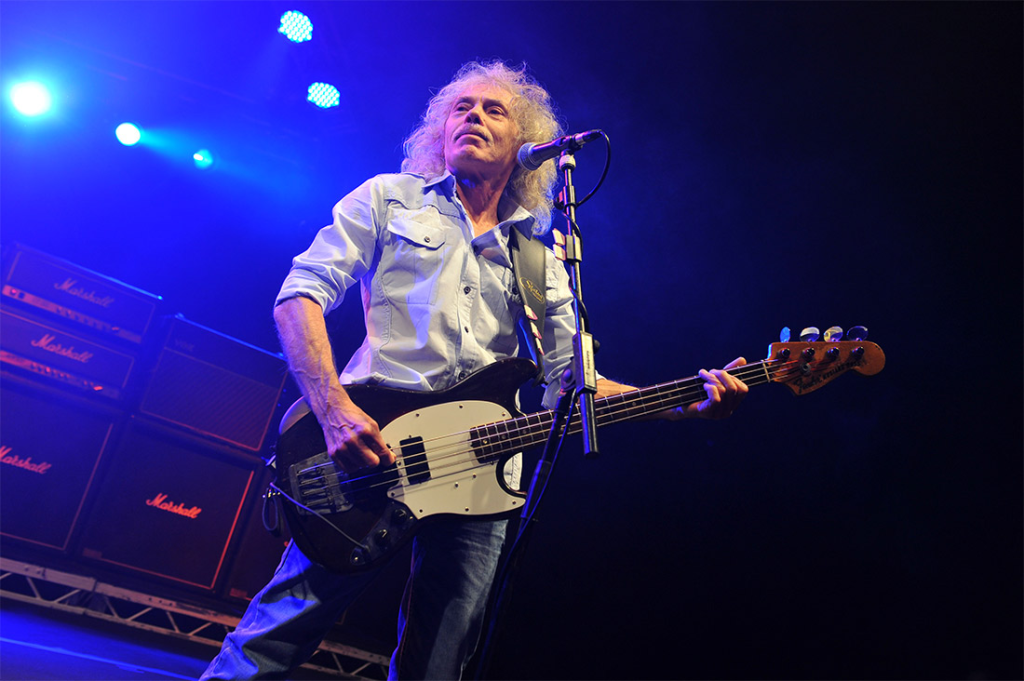
Alan Lancaster, the founding bassist of the British rock band Status Quo, passed away on September 26, 2021, at the age of 72 in Sydney, Australia. His death marked the end of an era for the band, which had been a significant force in the rock music scene during the 1970s and 1980s.
Early Life and Musical Beginnings
Born on February 7, 1949, in Peckham, South London, Alan Charles Lancaster developed an early interest in music. He met Francis Rossi at Sedgehill Comprehensive School in London, where they both played in the school orchestra. In 1962, they formed a band initially called The Scorpions, later renamed The Spectres, and eventually settled on the name Status Quo in 1967. The band’s lineup was completed with guitarist Rick Parfitt and drummer John Coghlan. Lancaster’s bass playing was characterized by its solid rhythm and supportive style, providing a foundation for the band’s energetic performances.
Rise to Fame
Status Quo achieved significant success with their blend of hard rock and boogie, producing hits like “Pictures of Matchstick Men” and “Down Down.” Lancaster contributed not only as a bassist but also as a vocalist and songwriter, leading tracks such as “Bye Bye Johnny” and “Roadhouse Blues.” He played on 15 of the band’s albums, including their breakthrough 1972 album Piledriver, which marked a shift towards their signature boogie-rock sound. Their success continued with hits like “Whatever You Want” and “Rockin’ All Over the World.”
Departure and Life in Australia

In 1985, Lancaster left Status Quo following their performance at Live Aid, citing personal and professional reasons. He had moved to Australia in 1983, where he became involved in local music scenes, joining bands such as The Party Boys and The Bombers. Despite his departure, Lancaster remained a respected figure in the rock community.
Reunion and Final Years
In 2013, Lancaster reunited with his former bandmates—Francis Rossi, Rick Parfitt, and John Coghlan—for a series of reunion concerts known as the “Frantic Four” tour. The tour was a nostalgic return to their classic lineup and was well-received by fans. Despite battling multiple sclerosis, Lancaster’s performance was marked by determination and passion, showcasing his enduring commitment to music.
Lancaster’s final performance with Status Quo was in Dublin in 2014. Following this, he largely withdrew from the public eye, focusing on his health and family life
Personal Life and Legacy
Lancaster married Dayle Thurbon in 1978, whom he had met during a 1973 tour in Australia. They had three children—Alan Jr., Toni, and David—and five grandchildren. Dayle described him as a devoted family man with a wonderful sense of humor. Despite his illness, Lancaster’s love for music and his family remained central to his life.
His death was met with tributes from across the music industry. Francis Rossi expressed deep sorrow, stating that Lancaster was “an integral part of the sound and the enormous success of Status Quo during the 60s and 70s.” Manager Simon Porter also paid tribute, recalling the joy of reuniting the original lineup for the 2013-14 tours and praising Lancaster’s determination despite his health challenges.

Alan Lancaster’s contributions to rock music, particularly through his work with Status Quo, left an indelible mark on the genre. His bass lines and vocal performances were integral to the band’s distinctive sound, and his legacy continues to influence musicians and fans alike.
Lancaster’s passing signifies the end of a significant chapter in rock history. However, his music endures, celebrated by generations of fans who continue to appreciate the timeless energy and spirit of Status Quo.
Leave a Reply